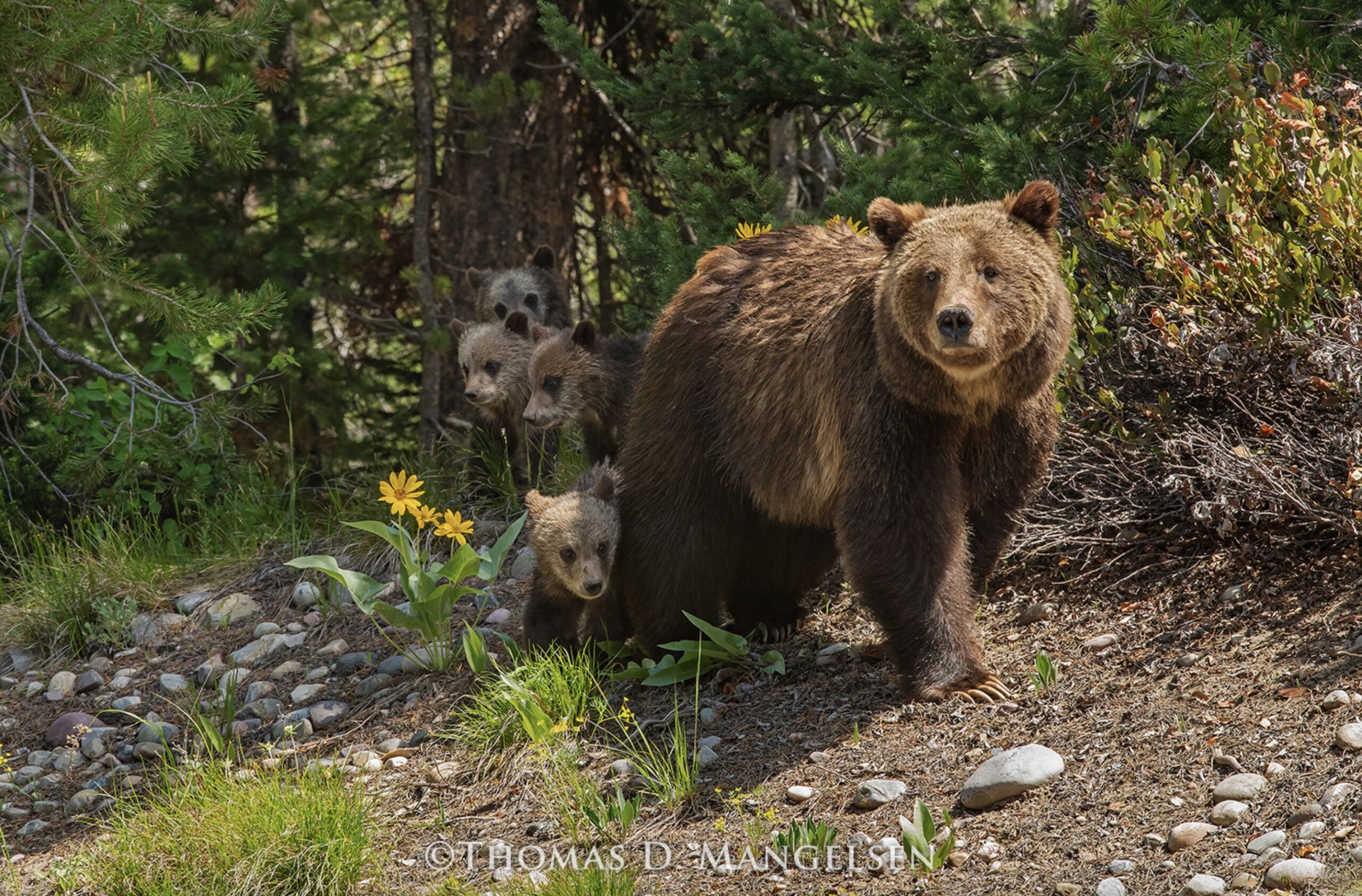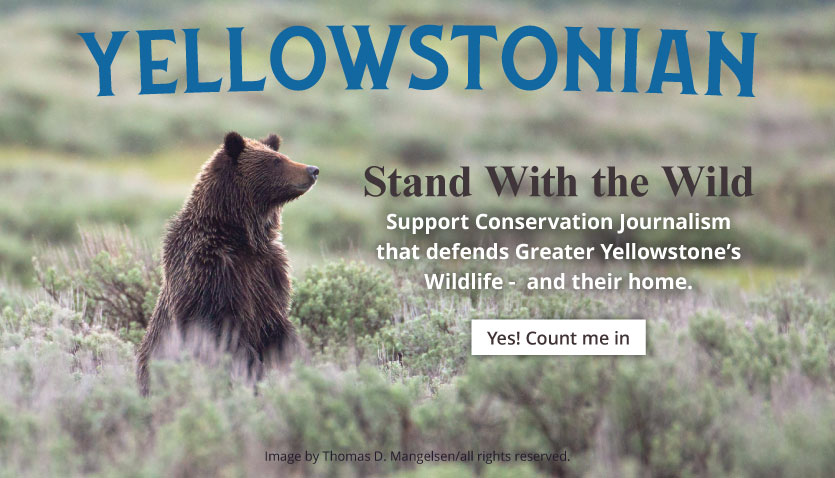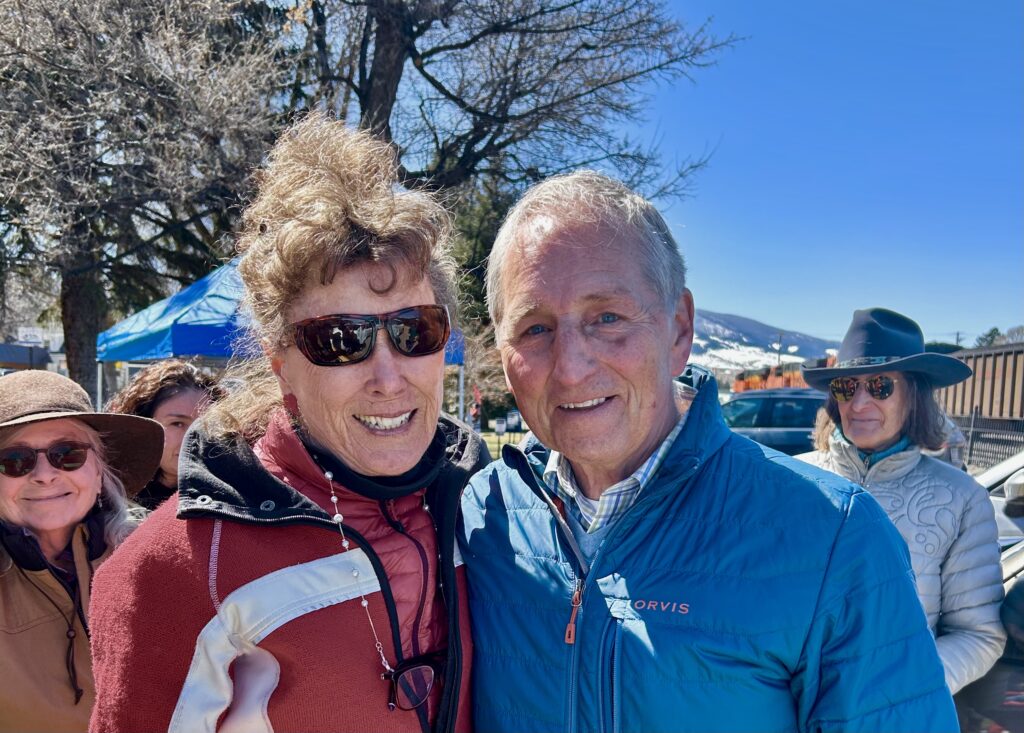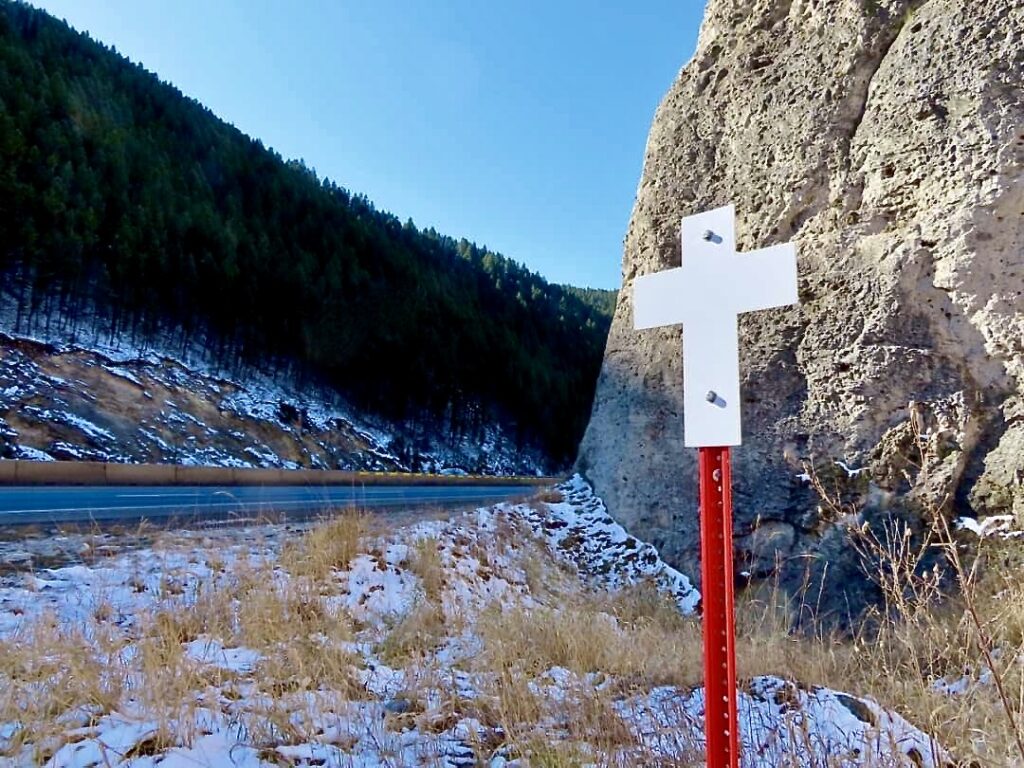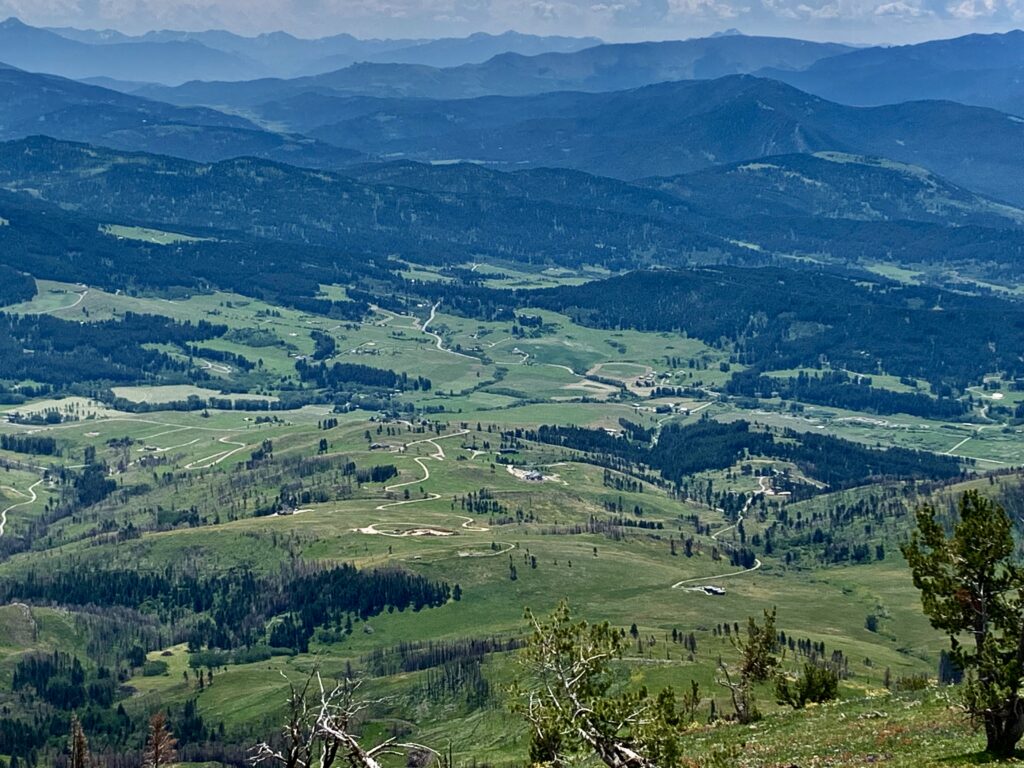by Yellowstonian
Elections have serious consequences. For people who love bears such as the late Jackson Hole grizzly mother 399 and her offspring, one of the consequences of the outcome is that, in 2025, states in the West are expected to fast-track removal of Greater Yellowstone’s world-famous population of grizzlies from federal protection with management turned over to Wyoming, Montana and Idaho.
It is no secret Republican governors and legislators in those states are eager to implement a sport hunt of grizzlies—something that has not existed for close to three human generations. Such a move would be highly controversial and sure to ignite a public backlash. While some polling shows there’s roughly a 50-50 split of opinion among citizens in those states on whether bears should be targeted as trophies, there is overwhelming opposition nationally to both delisting and allowing bears to be killed for fun.
Some of that can be owed to the high public profile of Grizzly 399, who was a topic of conversation between well-known Jackson Hole nature photographer Tom Mangelsen and Yellowstonian co-founder Todd Wilkinson who collaborated in producing two books about 399 and her family lineage. Since the conversation happened on Thursday, November 21, a recording of it has gone viral. Watch it for yourself below.
Besides delisting grizzlies, policy experts fully expect that aggressive efforts will made in Congress will to weaken longstanding laws providing environmental protection of public lands and wildlife. Perhaps the most serious threat may involve targeting the National Environmental Policy Act [often referenced as NEPA] which has been called “the Magna Carta of modern environmental laws.”
Considered one of the most democratic environmental codes in the world, NEPA requires that federal agencies apply the best available science to decisions and, equally as important, it guarantees citizens the right to scrutinize and legally challenge actions that do not comport with the law. NEPA was one lever used by the public interest law firm, Earthjustice and network of conservation organizations in two earlier efforts to restore federal protected status to Greater Yellowstone’s grizzly population after it had been delisted and states were preparing to implement trophy seasons on grizzlies.
All of this formed a backdrop for the “fireside chat” between Mangelsen and Wilkinson. Not only did Mangelsen share his thoughts about the tragic passing of Grizzly 399, the fate of her yearling cub, “Spirit,” and the survival of 399’s oldest living offspring, mother bear 610, but the two spoke about things that stand to undermine grizzly bear recovery.
While the reversal of fortunes for grizzlies in Greater Yellowstone has been called one of the greatest wildlife conservation success stories in history, five serious converging forces could jeopardize it. They are: hostile politics to grizzlies, paralleling how states are treating gray wolves; accelerating habitat loss on private lands in rural areas owed to exurban sprawl and development; rising conflicts leading to a record number of bears dying each year; rising levels of industrial strength recreation that are displacing grizzlies; and climate change that already is negatively affecting key food sources.
Since 399 died, there has been an outpouring of sympathy and a tidal wave of citizens asking what they can do to support grizzlies in the months ahead. Mangelsen identified four entities that readers should support. We are grateful he counted Yellowstonian among them. Thank you, Tom.

